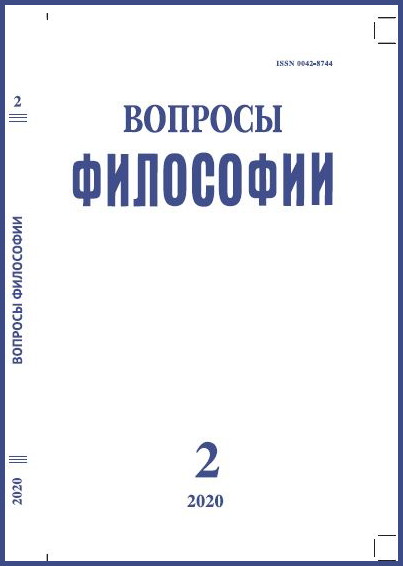Forgiveness and Morality: from Two Ethical Approaches to Two Moral Perspectives
DOI:
https://doi.org/10.21146/0042-8744-2020-2-86-97Keywords:
forgiveness, philosophy ethics, morality, responsibility, the Other, asymmetry, unconditional forgiveness, self-forgivenessAbstract
The article considers two main approaches to the phenomenon of forgiveness in ethical thought, followed by a demonstration of their limitations, to overcome which the idea of two moral perspectives is advanced in the second half of the article. Forgiveness means the individual, immediate and asymmetric engagement of two people: the person who commited a wrongdoing and the person offended by this wrongdoing. The asymmetric engagement means a different meaning of forgiveness for the one who grants it and the one who seeks it. In academic papers devoted to the ethics aspects of forgiveness various attempts to introduce a third, “objective” point of view on forgiveness prevail. The researchers are trying to conceptualize a single idea of forgiveness which would equally include both the perspective of the one who grants it and the perspective of the one who seeks it. In attempts to derive such a point of view, the essential features of forgiveness, and first of all the moral subjectivity of each participant, are eliminated. The article claims the inevitability of the asymmetric nature of forgiveness, which leads to the necessity to consider two, not reducible to each other in any theory, perspectives: 1) the perspective of the one who forgives the Other, which implies unconditional forgiveness; 2) the perspective of the one who seeks forgiveness from the Other, which implies self-forgiveness. It is impossible without contradictions to unite these two perspectives into a single and impersonal concept of forgiveness, but in order to begin a philosophical exploration of the phenomenon of forgiveness the attention to both perspectives is needed.

